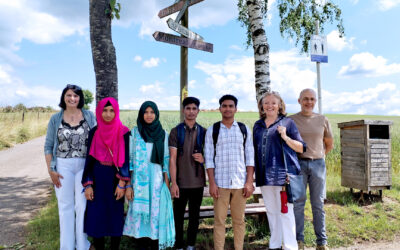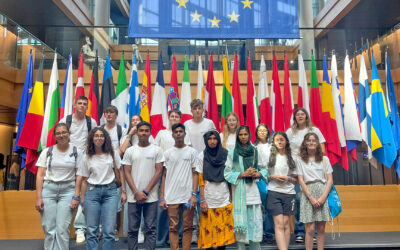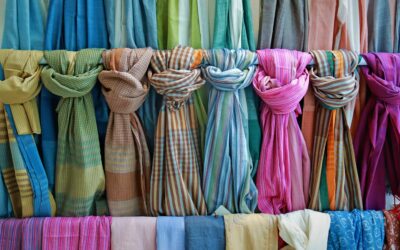Inclusive Citizenship is working to empower people with disability on the chars
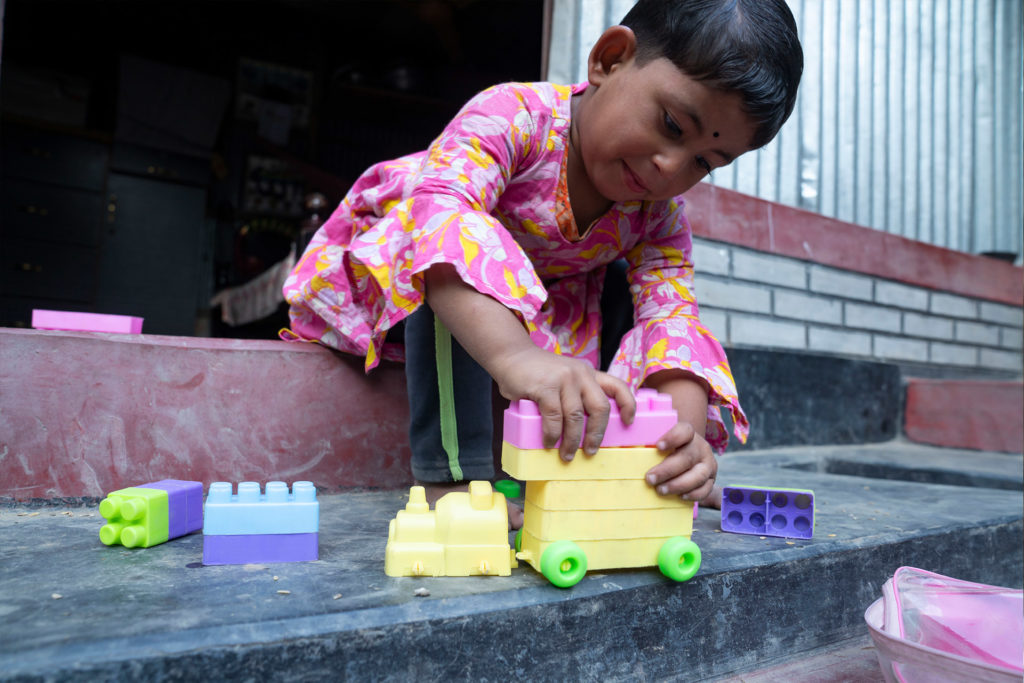
by TAHMEED CHAUDHURY
April 27, 2022
In Koraibari, a river island (char) in Gaibandha district, a grinning Tawhid guides us from a teashop outside the boundaries of his house to its front porch. Born with cerebral palsy, 13-year-old Tawhid developed locomotor disability and was unable to stand. Then one day about a year ago, he caught everyone by surprise when he tiptoed across his yard for the first time in his life.
“He needed assistance for the most basic of activities, like getting out of bed or going to the bathroom. I always had to keep him in sight, even while doing housework,” says Tawhid’s mother. His disability prevented him from going to school or playing with other children. His parents faced stigma from their community. In remote villages and chars of Bangladesh, disability is often seen as a curse or a penance for their parents’ sins.
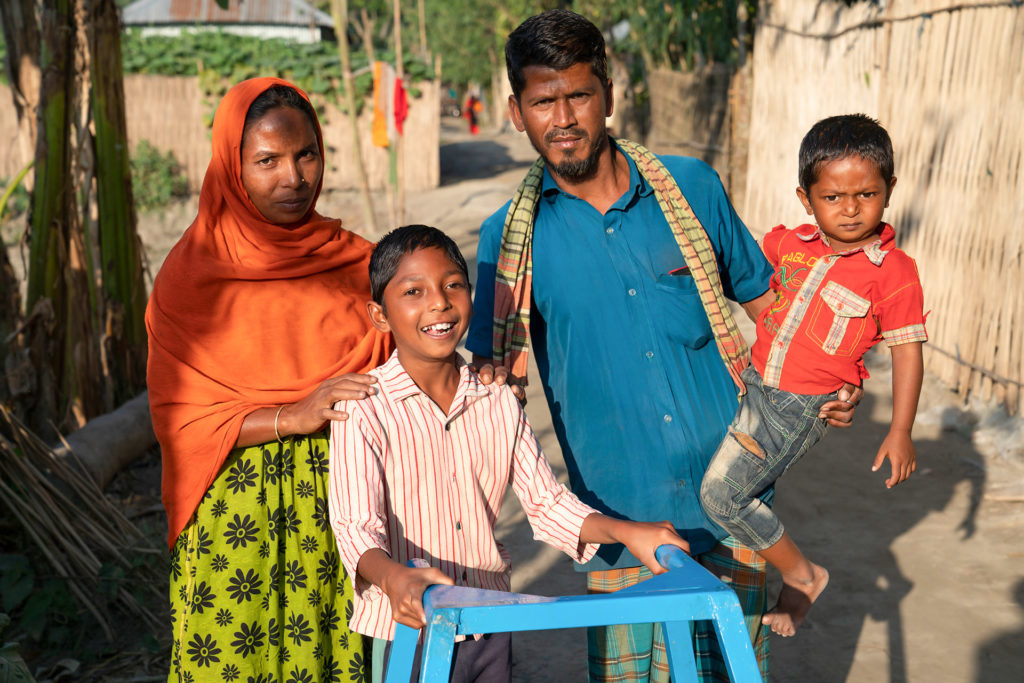
Tawhid’s parents had lost hope for his future, until Friendship’s physiotherapists began therapy in his home, visiting every two weeks and prescribing exercises. Tawhid showed incredible improvement in a short time—first learning to stand, and then to walk, albeit on his toes.
“I followed the physiotherapist’s advice and performed the recommended exercises on him consistently. I never expected him to be able to move on his own, but now he goes off here and there all by himself. I am grateful,” continues his mother.
In 2020 Friendship initiated a new project aimed at improving the lives of persons with disabilities in the river islands of northern Bangladesh. The programme includes door-to-door services like physiotherapy, counselling and routine follow-ups to households with persons that have a disability. It raises awareness through community sensitisation and youth groups to make the public more empathetic towards and inclusive of disabled people. It also informs persons with disability of their rights, and connects them to vital services.
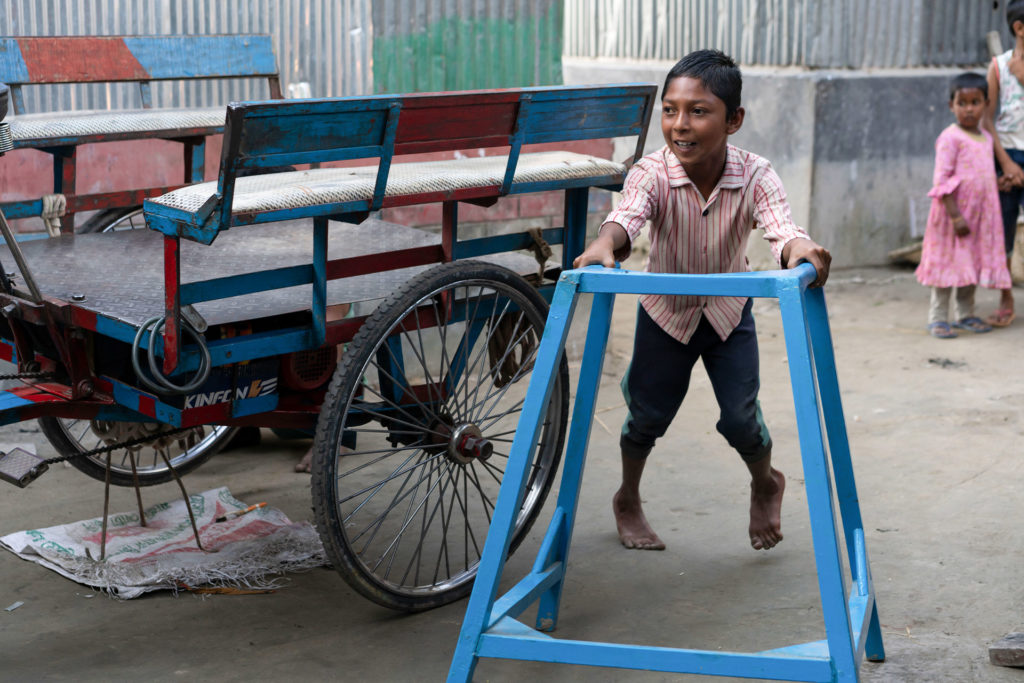
Sumaiya, 4, was also born with cerebral palsy, developing hearing and speech impairment. Unfortunately, poverty and a lack of awareness meant her parents did not reach out for treatment. “From the age of 6 months, we noticed that she did not speak at all and was unresponsive when spoken to,” says Md. Aminul Islam, her father.
“Her mother always had to keep her around as she could never hear. During last year’s flood, she jumped into water twice and had to be rescued. She causes so much trouble during disasters that we often have to keep her tied up.”
Taking Friendship’s advice, Sumaiya’s parents took her to the upazila (subdistrict) disability service centre in Gaibandha to receive therapy and counselling. Friendship staff routinely follow up on her to monitor her situation. She is now a lot more responsive to her parents and able to communicate with them better. “She is a lot cleverer now than before and more receptive to messages we try to give her.”
As part of the programme, volunteers build rapport with disabled people, take feedback from them and ensure adequate assistance. Friendship also helps increase accessibility to local government assistance, including helping beneficiaries obtain disability ID cards, disability allowances, assistive devices such as canes, walkers, hearing-aids and braille pads, and treatment from public hospitals. Lastly, the project also ensures that Friendship schools are made fully accessible.
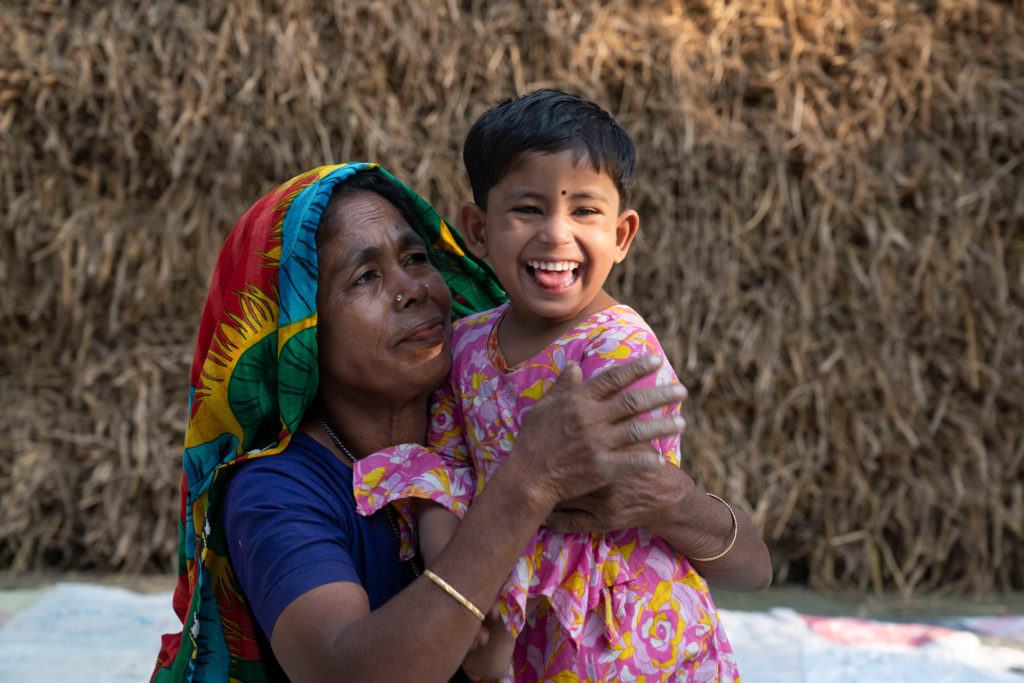
Ayesha Taasin Khan, senior director of the Inclusive Citizenship programme, says, “Life for persons with disabilities is never easy. However, we can only try to ease the difficulties they face. Working with them has changed my perspective of being ‘abled’ and puts me in a position where I can impact their lives and make it as comfortable as I possibly can. I thank all our partners and staff for making this a journey of contentment.”
Dr. Md. Mahfuzur Rahman, manager of the project, has observed a behavioural change in people towards disabled persons since its inception. Speaking at a training programme organised to build staff capacity on inclusion and familiarise them with the ethics and laws of handling persons with disability, he says, “People are more aware and sensitive about disabilities. Old beliefs such as that of disability being a curse are being blotted out, and disabled people are now more included in society. Moreover, disabled people are responding better to treatment and are learning to adapt to their conditions.”
The project is currently serving 970 disabled people in 15 chars in northern Bangladesh. Friendship is aiming to increase the project coverage to 15 more chars in the same region, allowing them to extend services to 460 more people with disability.
Plans are underway to add more innovative services, such as building a digital multipurpose centre to facilitate learning and skill development for disabled people and their families; thereby creating accessibility for disabled people at their households and at Friendship establishments. Examples are creating ramps at their homes or disabled friendly latrines at schools, and collaborating with local governments to include disabled people in decision-making.

